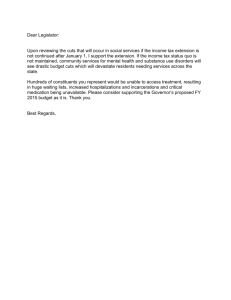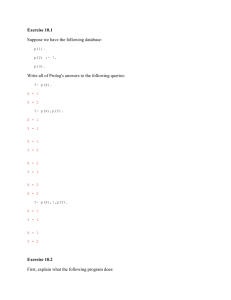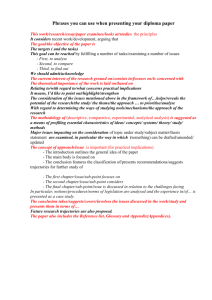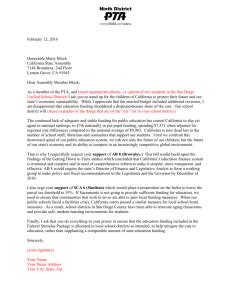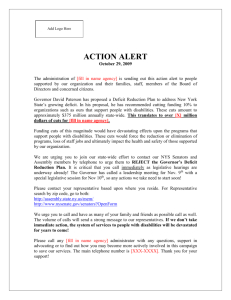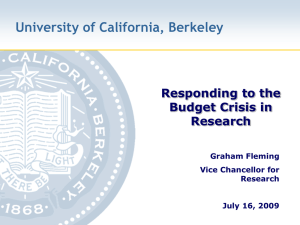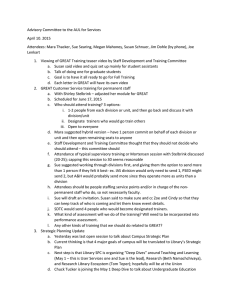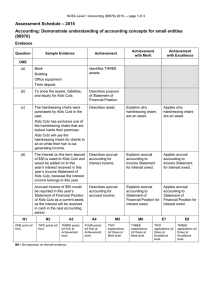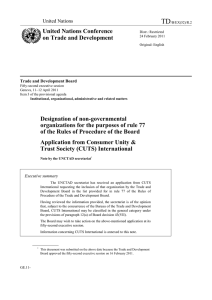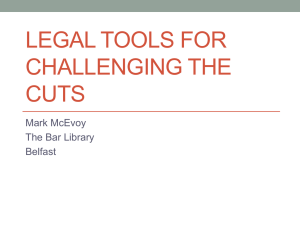Persuasive Speech
advertisement
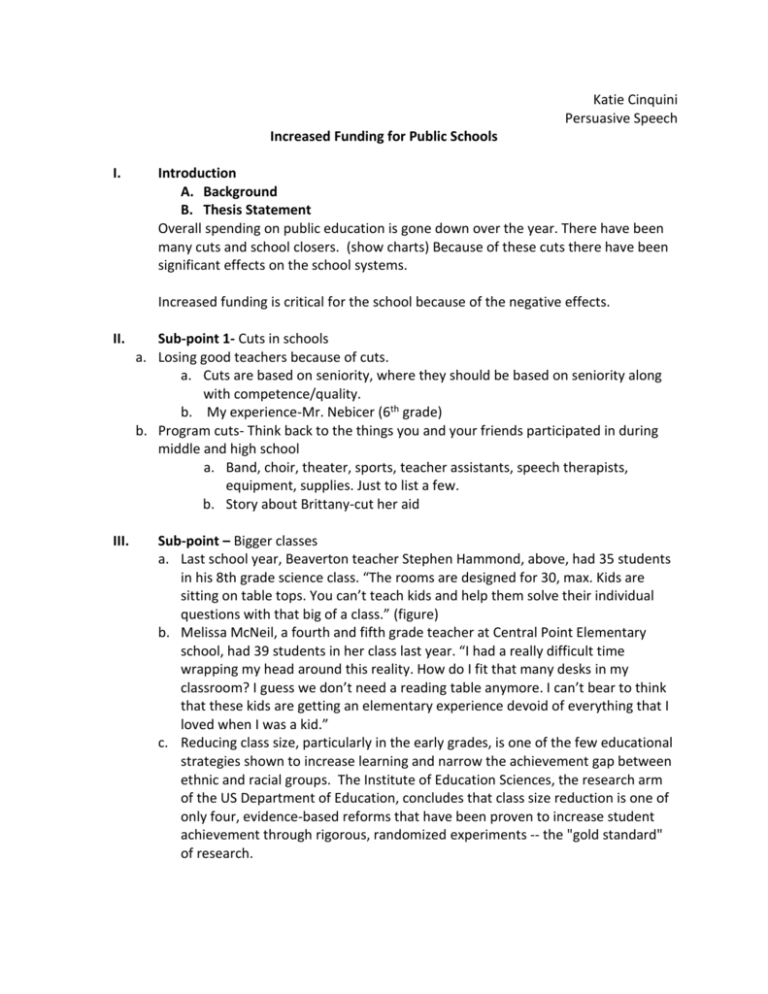
Katie Cinquini Persuasive Speech Increased Funding for Public Schools I. Introduction A. Background B. Thesis Statement Overall spending on public education is gone down over the year. There have been many cuts and school closers. (show charts) Because of these cuts there have been significant effects on the school systems. Increased funding is critical for the school because of the negative effects. II. III. Sub-point 1- Cuts in schools a. Losing good teachers because of cuts. a. Cuts are based on seniority, where they should be based on seniority along with competence/quality. b. My experience-Mr. Nebicer (6th grade) b. Program cuts- Think back to the things you and your friends participated in during middle and high school a. Band, choir, theater, sports, teacher assistants, speech therapists, equipment, supplies. Just to list a few. b. Story about Brittany-cut her aid Sub-point – Bigger classes a. Last school year, Beaverton teacher Stephen Hammond, above, had 35 students in his 8th grade science class. “The rooms are designed for 30, max. Kids are sitting on table tops. You can’t teach kids and help them solve their individual questions with that big of a class.” (figure) b. Melissa McNeil, a fourth and fifth grade teacher at Central Point Elementary school, had 39 students in her class last year. “I had a really difficult time wrapping my head around this reality. How do I fit that many desks in my classroom? I guess we don’t need a reading table anymore. I can’t bear to think that these kids are getting an elementary experience devoid of everything that I loved when I was a kid.” c. Reducing class size, particularly in the early grades, is one of the few educational strategies shown to increase learning and narrow the achievement gap between ethnic and racial groups. The Institute of Education Sciences, the research arm of the US Department of Education, concludes that class size reduction is one of only four, evidence-based reforms that have been proven to increase student achievement through rigorous, randomized experiments -- the "gold standard" of research. IV. Sub-point 3- high drop out rate a. Because of the cuts and lager class rooms students are over looked and less are able to succeed. b. Oregon has the fourth-worst high school graduation rate in the nation, according to the federal government's most accurate state-by-state report on the topic. Just 68 percent of Oregon high school students in the class of 2011 earned a diploma in four years. Forty-two other states did better, and three were unable to report properly so their rates weren't tallied. The report revealed that Oregon high schools generate far-above-average dropout rates for students of every racial and ethnic group, including the nation's third-worst graduation rate for African Americans. (from a report by Oregonnewslive) V. Conclusion The spending on public education should be increased because of the negative effects it is having on our schools, students, and communities. Think of your younger brothers and sisters, nieces and nephews, friends’ siblings, cousins, even your future children. What is going to be left of our school if we don’t change something? How are we going to feel later down the road when we look back and know we could have helped support somehow but didn’t. Get involved! Write letters, go to meetings, know your facts, and support the community. Last night my husband and I participated in an awareness walk to help support one of the local schools. It can be a simple thing or more in-depth. It doesn’t matter, just help. In 2010 Education is about 3% of that. In 2000
